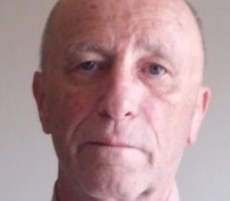Subjective math, subjective chemistry….why not? Well, actually, there could be some valid reasons why not
After facing a storm of criticism by even such normally-friendly media as the Toronto Sun over the claim that math could be “subjective,” the Ford government backed down and removed the reference from the preamble to the curriculum.
by Hans Weinhold
Ontario’s proposed new “subjective math curriculum:” just wait until they start to apply this in the chemistry labs.
It reminds me of my lab partner at Mohawk College. This guy struggled every step of the way due to the white supremacist chemistry course we were being brainwashed with.
One day it struck me: I realized a what was causing a major part of his difficulty the day we were doing some experiment involving orlon fibre. He had a habit of reading his lab instructions aloud while conducting his experiments; every time he came across the word “orlon,” he would say a different word. I can still remember a couple of his subjective interpretations of that word – “Orion” and “Oreo.”
I said to him, “You know what your problem is? Your reading skills are not very good, they are too subjective. (I’m joking about the latter.) A remedial reading course could really help you in this program.”
He replied indignantly, “I don’t need no reading course. I won an award in literature when I was in high school.” He went to a high school in St. Catharines. Obviously they must have been at the cutting edge of Lit Equity as early as 1982!
We were doing a lab once involving a solution of something called hydrazine sulphate. As with the orlon, every time he came across the words, “hydrazine sulphate,” he read something completely different from the page.
I can’t remember what the lab was about other than the hydrazine sulphate. The recipe called for 5 mL of hydrazine sulphate solution in a small graduated cylinder. When he got to that part, he read aloud, “5 mL hydrogen sulphide solution.”
He turned to me and asked, “Where do we get the hydrogen sulphide?”
It just so happened, there was a small canister of H2S in the fume hood. Flippantly, I answered, “it’s over there, in the fume hood.”
I wanted to see if he would actually get the H2S canister and crank it open to fill his graduated cylinder. And then to see how long it would take for everyone in the room to drop dead.
Seriously though, I wasn’t going to let him go that far but I was curious to see how far he would go. He got halfway to the fume hood when he suddenly stopped, scratched the back of his head, came walking back to me, and asked, “but hydrogen sulfide is a gas. How am I supposed to put 5 mL in this cylinder?”
If I had seen “Breaking Bad” prior to that event I might have replied, “Yep, pouring 5mL of a gas into a 10mL graduated cylinder could be a real challenge, not to mention that it could kill the whole class. So, there’s that.”
You can probably get away with subjective math for a period of time before any fatalities occur; but if the Ontario Ministry of Education starts pushing equitable chemistry, the results will be immediate and obvious.
 Retired Taxi driver Hans Weinhold is listed in his biography as simultaneously a Welfare Recipient at Senior’s Welfare; Self-Employed; and also, a Climate Scientist at BS Detective Services.
Retired Taxi driver Hans Weinhold is listed in his biography as simultaneously a Welfare Recipient at Senior’s Welfare; Self-Employed; and also, a Climate Scientist at BS Detective Services.








